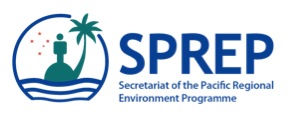The Steering Committee of the Pacific Persistent Organic Pollutants (POPs) Release Reduction Project 2013-2018 has assessed progress, strategic gaps and next steps.
The project seeks to reduce POPs releases in the 14 Pacific Island countries that are Parties to the Stockholm Convention by improving solid and hazardous wastes management.
 12 April 2016: The Steering Committee of the Pacific Persistent Organic Pollutants (POPs) Release Reduction Project 2013-2018 has assessed progress, strategic gaps and next steps. The project seeks to reduce POPs releases in the 14 Pacific Island countries that are Parties to the Stockholm Convention by improving solid and hazardous wastes management.
12 April 2016: The Steering Committee of the Pacific Persistent Organic Pollutants (POPs) Release Reduction Project 2013-2018 has assessed progress, strategic gaps and next steps. The project seeks to reduce POPs releases in the 14 Pacific Island countries that are Parties to the Stockholm Convention by improving solid and hazardous wastes management.
The Committee held its third meeting in Suva, Fiji, from 11-12 April 2016.
Participants identified issues affecting project implementation, such as gaps in POPs coverage in existing legislation, weak monitoring and enforcement of of existing laws, and insufficient attention to occupational exposure issues. As for activities foreseen in the second half of the Project (2016-2018), the Committee was briefed on plans for a training programme to be conducted in all 14 Project countries during May-October 2016 that will, among other things, develop a national chemicals management action plan. The Committee also was briefed on an upcoming public awareness campaign titled ‘Stop the POPs.’
Implemented through the UN Environment Programme (UNEP) and the Food and Agriculture Organization of the UN (FAO) and executed by Secretariat of the Pacific Regional Environment Programme (SPREP), the US$3.75 million Project is funded by the Global Environment Facility (GEF) and co-funded by the Agence Franaise de Developpement (AFD).
The third Steering Committee meeting was attended by representatives from Cook Islands, the Federated States of Micronesia (FSM), Fiji, Kiribati, Marshall Islands, Nauru, Niue, Papua New Guinea, Samoa, Solomon Islands, Tonga, Tuvalu and Vanuatu, as well as from SPREP, UNEP, the University of the South Pacific, and the Japanese Technical Cooperation Project for Promotion of Regional Initiative on Solid Waste Management in Pacific Island Countries (J-PRISM). [SPREP Press Release] [Pacific POPS Release Reduction Project Webpage]